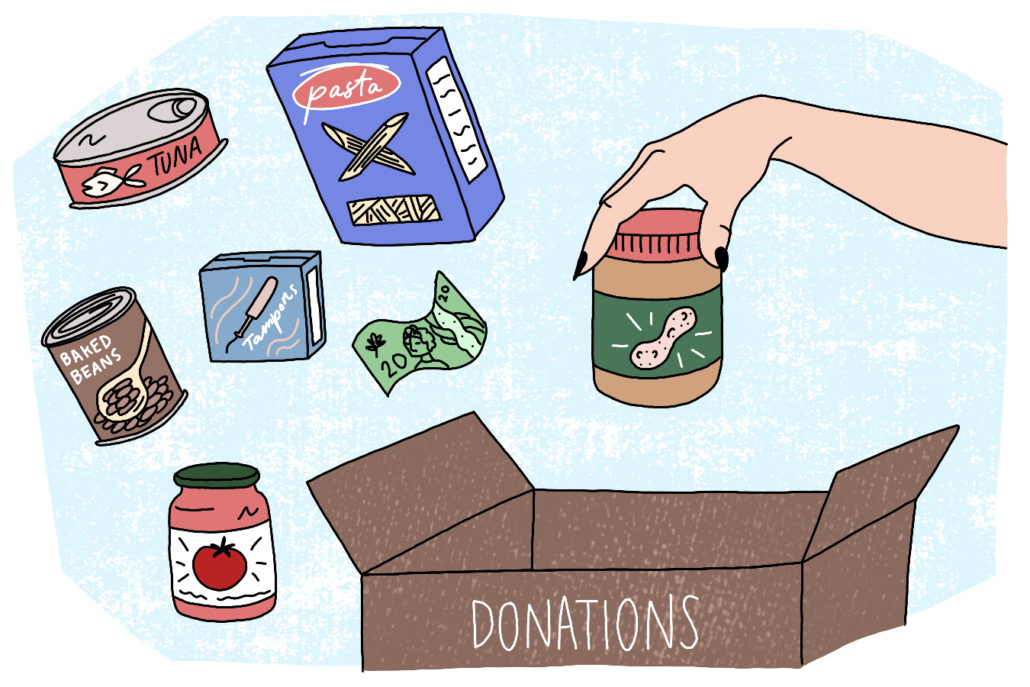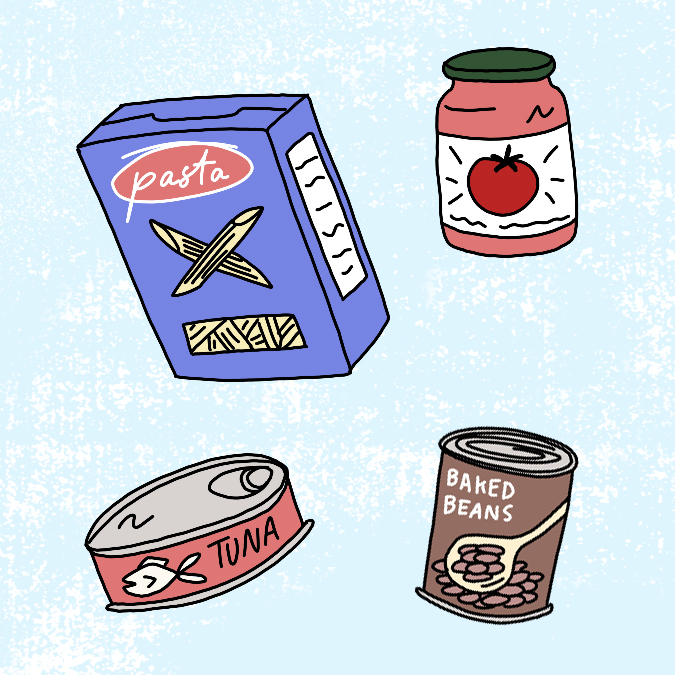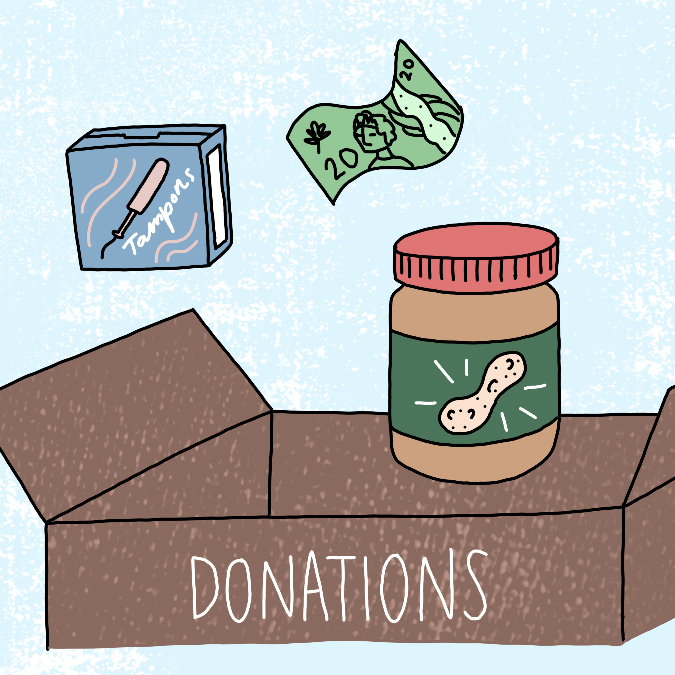
Food banks are grateful for any help, but here’s how to make the most effective donations
With 120,000 families in Toronto using food banks every year, chances are you encounter people who use their services every day—you just don’t know it, says Neil Hetherington, CEO of the Daily Bread Food Bank. It could be someone on the subway, the woman cashing a cheque for you at the bank or the man who pulled your morning latte. “They’re individuals living in an incredibly expensive city,” he says.
Located in an industrial part of Etobicoke, the Daily Bread Food Bank’s giant warehouse is teeming with pallets of food. Approximately 10 million pounds move through it each day, ready to be sorted, boxed and sent out to neighbourhood food banks, or to become ingredients for one of the 5,000 weekly meals made in-house for local initiatives. But not all those ingredients are created equal.
Visiting a food bank is like grocery shopping, but without the bill. Variety and quality are key, and there are always items that are in high demand. When it comes to deciding what to donate to food banks, there are a few key staples food banks are really keen on getting—and some items they can live without.

What do food banks need most?
Obviously, cash rules, but there are plenty of other much-needed items to give to food banks, too. If you can’t donate food, Hetherington suggests contributing your time at the warehouse (that 10 million pounds of daily food isn’t going to sort itself!), running a food drive or sitting on a board.
But if you’re at the grocery store and can pop something extra in your cart to give to others, here are the best hot-ticket items that food banks need the most.
- Tuna: A small but mighty can of tuna packs an average of 30 grams of protein. It’s one of the most sought-after items by food banks. “Anything with high protein levels, we’re terribly appreciative of,” says Hetherington.
- Canned meat: Just like tuna, easy, shelf-stable proteins like flaked ham and turkey are gold.
- Peanut butter: Another top protein pick, peanut butter—or any nut butter—is quickly scooped up by food banks to be distributed to people experiencing food insecurity. It goes on sale often, so if you notice a deal, buy extra to put in the donation bin.
- Beans and lentils: They really are the magical fruit! Beans can be prepared in any number of ways—refried are excellent for adding to burritos, and just about any whole bean can go into salads, soups, chilis or stews. Dried beans and lentils are just fine; if you’re donating canned, suss out brands with lower sodium.
- Pasta: What’s the ideal base for a quick, filling meal that goes a long way? That would be everyone’s favourite carb: pasta. Bags and boxes of pasta are a food bank–shelf staple. White or whole grain works, or add gluten-free noodles to your cart to help families coping with food allergies and sensitivities.
- Pasta sauce: Anything goes when it comes to pasta sauce. Think alfredo, pestos, shelf-stable Bolognese or marinara.

- Nutrient-dense cereals and oatmeal: Breakfast is the most important meal of the day, they say, so look for hearty cereals and oatmeal that are low in sugar and high in fibre (more than 2 grams per serving).
- Toilet paper: Have you ever thought about what you would do if you couldn’t afford TP? It’s a real struggle, so throw an extra package in your cart. Two-ply, if you can swing it.
- Jars or pouches of baby food: Baby food pouches or jars, as well as toddler-geared snacks, are great. If you have the bandwidth, a pack of diapers is really helpful, too.
- Canned fruit and veggies: Seek out the healthier options if you can. A lot of canned veggies contain high levels of sodium, so read the label before you buy. When it comes to fruit, try to avoid items packed in heavy syrup and opt for those packed in juice or water instead.
- Feminine hygiene products: Imagine not being able to afford pads or tampons, or having to choose between them and a meal? It happens—a lot. While Daily Bread doesn’t specifically ask for these, they’re grateful to receive them, and they’re always in short supply.
What not to donate to a food bank
It’s not a misconception that food banks often have high-sugar cereals, junky snack foods (delicious, but not always nutritionally sound) and enriched-white-flour bread on their shelves. While food banks are happy to accept all donations, Hetherington says, if you’re really keen on contributing the best items, look for nutrient-dense options: choose a healthier cereal, a loaf of whole wheat bread or that coveted can of tuna, and leave the magically delicious stuff at the grocery store. There’s no need to feel badly if you’ve donated these types of items, though—they all get distributed and are gratefully received.
And, while it may be given with good intentions, expired products from your pantry cleanup should stay out of the donation bin, please. (You’d be surprised….)